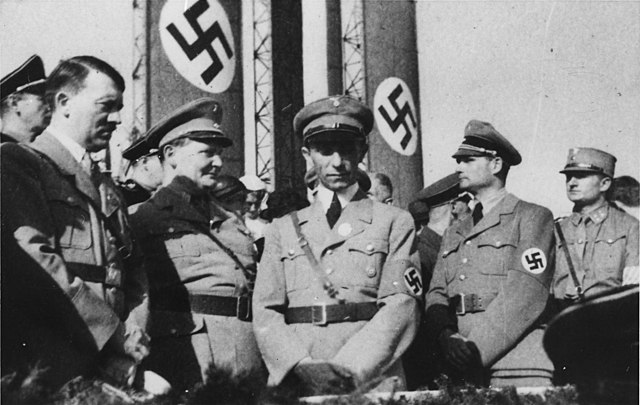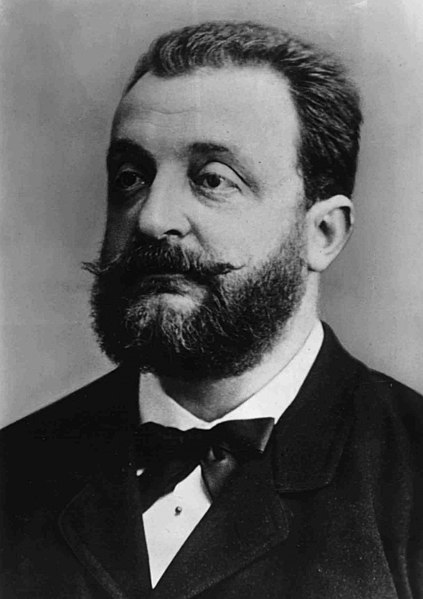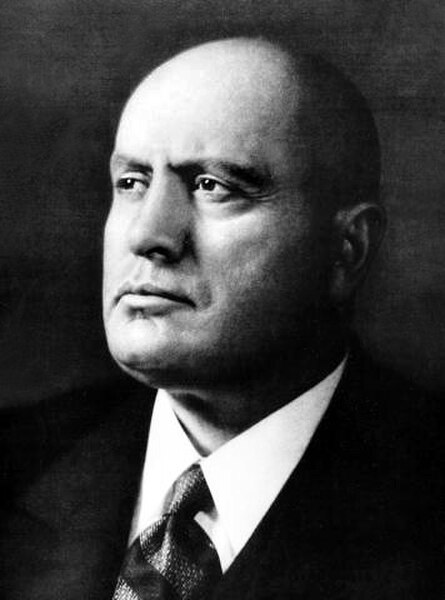Nazism, the common name in English for National Socialism, is the far-right totalitarian socio-political ideology and practices associated with Adolf Hitler and the Nazi Party (NSDAP) in Germany. During Hitler's rise to power in 1930s Europe, it was frequently referred to as Hitlerism. The later related term "neo-Nazism" is applied to other far-right groups with similar ideas which formed after the Second World War when the Nazi regime collapsed.
Left to right: Adolf Hitler, Hermann Göring, Minister of Propaganda Joseph Goebbels, and Rudolf Hess
Nazis alongside members of the far-right reactionary and monarchist German National People's Party (DNVP) during the brief NSDAP–DNVP alliance in the Harzburg Front from 1931 to 1932
Johann Gottlieb Fichte, considered one of the fathers of German nationalism
Georg Ritter von Schönerer, a major exponent of Pan-Germanism in Austria
Far-right politics, or right-wing extremism, is a spectrum of political thought that tends to be radically conservative, ultra-nationalist, and authoritarian, often also including nativist tendencies. The name derives from the left–right political spectrum, with the "far right" considered further from center than the standard political right.
The Unite the Right rally in Charlottesville, Virginia, 2017.
Benito Mussolini, dictator and founder of Italian Fascism, a far-right ideology
Spanish Falangist volunteer forces of the Blue Division entrain at San Sebastián, 1942
CasaPound rally in Naples








